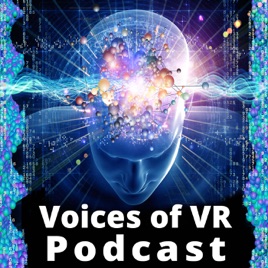
Advertise on podcast: Voices of VR
Rating
4.8 from
Country
This podcast has
200 episodes
Language
Publisher
Explicit
No
Date created
2014/05/06
Average duration
59 min.
Release period
3 days
Description
Since May 2014, Kent Bye has published over 1000 Voices of VR podcast interviews featuring the pioneering artists, storytellers, and technologists driving the resurgence of virtual & augmented reality. He's an oral historian, experiential journalist, & aspiring philosopher, helping to define the patterns of immersive storytelling, experiential design, ethical frameworks, & the ultimate potential of XR.
Social media
Check Voices of VR social media presence
Podcast episodes
Check latest episodes from Voices of VR podcast
#1352: Felix & Paul Studios Secures Funding for Next LBE VR + Apple Vision Pro’s Focus on Entertainment
2024/02/23
On February 13, 2024, Felix & Paul studios announced that they had secured multi-million dollar financing for their next Location-Based Entertainment (LBE) VR experience that was their "most ambitious project yet" and based upon a brand-new IP that's set to launch in 2025. They had such a big success with their previous LBE of The Infinite (based upon documentary footage shot over the course of 2.5 years on the International Space Station) that they realized that LBE experiences were going to become a significant part of the future of their business.
The press release didn't provide a lot of other details, and so I wanted to catch up with Felix & Paul Studios co-founder Paul Raphaël to share a bit more context for how this came about, more details on their LBE successes with The Infinite, and whatever else he could share about this new project. In the second half of this conversation, we talk about his experiences with the Apple Vision Pro, how Apple is emphasizing entertainment experiences and 180 videos, and how they want to eventually bring many of their 360-videos Felix & Paul Studios productions or potential adaptations to the platform. We also talk about how Felix & Paul is continuing to move beyond just cinematic 360 documentary video, and into CGI-based fiction projects like their Magic Leap 2 AR piece Jim Henson’s The Storyteller, which premiered at Venice Immersive.
It's certainly an exciting time for the industry, and Felix & Paul Studios will be building their LBE experiences from the ground up taking what they've learned from cinematic 360 documentary videos and translating that into full, 6-DoF, fiction narrative VR experiences with social dimensions with even more immersive installation onboarding and offboarding plans as well.
more
#1351: “Stranger Things VR” Breakdown of Story, Gameplay, & Design Process with Tenderclaws Co-Founders
2024/02/22
Stranger Things VR is part action adventure, psychological thriller, and deep dive character study of Vecna, who the main villain of the Stranger Things tv show introduced in Season 4. I have only seen Season 1, and so there there parts where I had to watch a recap to get a bit more context but it definitely can still work as a standalone piece. Seasons 1 and 4 are apparently the ones that give the most context to this VR experience, but there are also other references that from throughout all of the seasons. If you've a fan of interactive VR narrative games, then there is plenty of interesting experimentations with pushing forward what's possible in telling stories in VR. There are also enough innovative VR mechanics to have some satisfying gameplay elements, but the story is clearly the main focus here.
I had a chance to catch up with the co-founders of Tender Claws Samantha Gorman and Danny Cannizzaro in order to get a lot more context for how this project came about, how they pitched it, the development process of iterating between the story, character study, gameplay, and worldbuilding. I also get a bit more context for what people should know about the series before jumping in, and so there's a bit of a primer even within this conversation that should add additional context if you're completely new to the series. I'd recommend at least watching through the first season, and perhaps watch the beginning of the this recap to get a bit more of an introduction to the character of Henry, who ends up transforming into Vecna. I really enjoyed playing through this experience, and there are elements of psychological terror that sent chills down my spine, but it's not too much of a horror genre with cheap jump scares. Lots of innovative ways to use changes in lighting, flipping between reality filters, and sound design that are really well done. And I really enjoyed my overall playthrough with only getting caught up on a few chapters.
more
#1350: Healium Developer Challenges Meta’s Open Ecosystem Claims Being Stuck in App Lab for 3 Years While Launching on Day One for Apple Vision Pro
2024/02/21
Last Wednesday, Meta CEO Mark Zuckerberg posted a review of the Apple Vision Pro on his Instagram page where at the end he made the claim that Meta intends on being a much more open platform and ecosystem than Apple. While Meta has pushed forward standards like OpenXR and has an industry-leading implementation of WebXR, their curation strategy on the Quest store has been highly curated and much more similar to a closed, walled garden strategy of a gaming console. According to my informal count, Meta has only launched around 620 official Quest apps in 4.7 years since the Quest launched in May 2019, while the Apple Vision Pro already has over 1000 apps launched after 11 days.
Sarah Hill was able to launch the Apple Vision Pro version of her Healium app onto the Apple Store on day 1 while they've been relegated to Meta's App Lab for over 3 years now with no hope to ever be promoted. App Lab was originally inspired by the success of SideQuest, which was an third-party method for apps that were rejected from Meta's official store to be side loaded onto a Quest device. But Meta launched their own alternative store competitor of App Lab in February 2021 and slowly made SideQuest harder and harder to use. Being App Lab is still not the same on being on the main store as Meta makes it much harder for consumers to organically search and discover her app. Despite all of the traction that Healium has found with enterprise customers, they still have not been promoted to the main Quest store. Given Hill's experiences with both Meta and Apple, then she does not buy Zuckerberg's claims that Meta will somehow prove to be the more open of a platform.
I wanted to touch base with Hill to have her elaborate on her experiences with both ecosystems, and how she's been able to continue to thrive in delivering mediation experiences with biometric data integrations with different watches and EEG sensors by finding enterprise customers, integrating with other headsets, and making the most of their constrained access to the Quest ecosystem despite all of the disadvantages of being stuck on App Lab.
more
1349: Building Juno for YouTube visionOS App with iOS developer Christian Selig
2024/02/15
One of the more popular apps for the Apple Vision Pro is Juno for YouTube, which iOS developer Christian Selig created in a week using the emulator to have ready in time for the February 2nd launch. Mark Gurman reported on January 18th that Spotify and YouTube were joining Neflix in not having native visionOS apps at launch, and Selig saw an opportunity to port his previous YouTube API integrations from his Apollo Reddit app into a native app. I caught up with Selig on the same day that he pushed out a 1.1 version that fixed a lot of the differences between that the visionOS simulator felt like versus what the actual eye tracking and hand gestures felt like on the Apple Vision Pro hardware. There were many differences that we explore in this podcast, but also some of the existing operating system limitations of the 1.03 and 1.1 versions of visionOS that have launched so far in terms of multiple audio sessions, huge screen theatre modes not being available to developers yet, and the mixed reality limitations of the immersive modes.
more
#1348: The Journey from VRvana to Apple Vision Pro with co-founder Bert Nepveu
2024/02/09
Bert Nepveu is a co-founder of VRvana, which made a enterprise mixed reality headset that was acquired by Apple in 2017 and provided a number of key innovations that have now shipped with the Apple Vision Pro. I had a chance to sit down with Nepveu to capture a comprehensive founder's journey from the beginning inspiration in 2005, the first prototype in 2013, the failed Kickstarter in 2014 after the Crescent Bay prototype at Oculus Connect 1 stole their thunder, and then their pivot into more enterprise applications of AR via mixed reality passthrough that eventually led to their acquisition by Apple that started at GDC 2017 and closed in September 2017, and then was leaked to TechCrunch in November 2017.
Nepveu was also able to talk about his experiences of working at Apple, the challenges of point-of-view correction to minimize warping for mixed reality, and how the multiple stakeholders of human interaction, industrial design, and secrecy dictated by legal departments ended up battling it out over a number of different design decisions.
Nepveu left Apple around three years ago to become a general partner of a VC firm called TripTyq Capital that is funding content creation innovations, and he didn't know if the Apple Vision Pro would ever actually ship or if he'd ever be able to talk about his many aspects of his journey with VRvana. But now that it has finally launched, he's able to speak more about his journey and why it was so emotional for him to finally get a chance to do a demo of the consumer release of the Apple Vision Pro last week.
Apple is notoriously secretive about so many technical details of their product development and business in general, and so this is a very unique and rare peak behind the scenes on a portion of the timeline for how the Apple Vision Pro came about through the lens of which parts of the VRvana mixed reality headset were able to be shipped with the Apple Vision Pro.
more
#1347: One of the Grandfathers of VR Tom Furness on the Origins of Virtual Reality
2024/02/08
Tom Furness has been working on virtual reality technologies since 1966, but most of his early work with the United States Air Force has remained fairly secret (see my previous interviews in episodes #245 and #347). Ivan Sutherland and Mort Heileg are often cited as early VR pioneers, but Furness was also working secretly at Wright Patterson Air Force base on the first helmet-mounted displays, visually-coupled systems, and eventually The Super Cockpit. It wasn't until he was given permission to speak about The Super Cockpit project in the mid-80s that the world got to learn about the advances in VR technologies he'd been working on.
I had a chance to catch up with Furness at the AWE 2023 on June 1st, just ahead of Apple's announcement of the Apple Vision Pro that happened a few days later on June 5th. We talk about the Virtual World Society, and the meeting of XR industry CEOs and leaders at AWE to have an off-the-record conversation about the impacts of AI and how to collaborate to help bring about a more exalted future of the XR industry.
Furness also shares a bit more context of the early history of VR, as he's has been working continuously within for the past 57-58 years. I think it's really important to look back upon where these immersive and spatial computing technologies have come from in order to get a better idea for where they might be going. Furness also recently won the inaugural member's choice Ethical Values Award from the XR Guild for significant contributions to the XR industry, and continues to lead the Virtual World Society to promote the more pro-social uses of XR technologies.
more
#1346: Apple Vision Pro First Impressions with Road to VR’s Ben Lang & the Comparisons to Meta Quest
2024/02/06
The Apple Vision Pro launched on February 2nd, 2024, and I feel like it represents an inflection point in the XR industry where the screen resolution is high enough for it to be used as a viable screen replacement, the eye-tracking combined with pinch gestures is a paradigm shift in human-computer interaction reaching new levels of speed and intuitiveness to get into productivity flow states, and the software ecosystem of 600 visionOS apps with over one million 2D iOS and iPadOS apps makes a really compelling argument that this is a proper spatial computing device and not just the most advance virtual reality / mixed reality headset launched so far. The ergonomics and weight distribution for both default straps are inexcusably terrible in my own experience, and there's a growing consensus that they're suboptimal for most people with a minority of people feeling one of the straps are completely adequate. I expect DIY fixes and third-party strap solutions to start to fix this existing gap in comfort. At $3500, you'd expect to get something that feels better than most VR headsets on the market, but this is not the case.
I had a chance to catch up with Road to VR co-founder and executive editor Ben Lang, who has had a number of demos in 2023, and has actually had early review access to the Apple Vision Pro for more than a week now (his full review should be landing either this week or next). We actually talked to each other using our Personas in Apple Vision Pro while recording external audio since I still need to still figure out how to record within the headset. But we share a lot of our first impressions of the Apple Vision Pro, some early technical feedback, and elaborate on many of the comparisons to Meta's Quest 3.
Lang elaborates on how usability and ecosystem integration are some of the more qualitative differences that go beyond any of the quantitative specifications that ultimately creates a qualitatively different holistic experience that transcends anything that the Quest ecosystem has been able to achieve. Lang makes the pithy insight that it's the ergonomics that is the biggest bottleneck for more use and adoption of this device, and that at launch there are already enough things to see and do from a productivity perspective that the bottleneck for XR is no longer a matter of software or retention, but rather that the weight distribution is simply uncomfortable for extended use. The $3500 baseline cost is of course a barrier for the general public, but like many other Pro devices, most people will be writing off the Apple Vision Pro as a business expense if they can functionally use it within the context of their business (which many XR developers are using it a developer kit).
But what has been the most surprising to me is how much utility this device can have out of the box -- caveat being that you really do need a Bluetooth keyboard and potentially a Magic Trackpad or Mac Laptop to truly use it the full capacity of a spatial computing device that replaces or augments your existing devices. The holistic integration of the Apple ecosystem is one of the biggest value propositions for people who are already either fully committed or even partially invested into the Apple ecosystem. I'm only half-way committed with an iPhone and iPad, but without a Magic Trackpad, MacBook Pro laptop, Airpods (for headphones since there is no headphone jack for the Apple Vision Pro), and I use Google Drive instead of iCloud. Even my Logitech K830 Bluetooth keyboard had some Bluetooth connectivity glitches that made me wonder if I should just get Apple's keyboard. But I won't be able to reach the full potential of the Apple Vision Pro until I more fully commit to all of Apple's ecosystem. I made a couple of Linkedin posts with more first impressions here and here.
There are a lot of annoying operating system and software bugs i...
more
#1345: AI-Driven Poetry Performance & Decolonization Workshop at Sundance New Frontier with “Being (the Digital Griot)”
2024/01/23
I interviewed Being (the Digital Griot) creator Rashaad Newsome remotely during the Sundance 2024 Festival. See more context in the rough transcript below.
This is a listener-supported podcast through the Voices of VR Patreon.
Music: Fatality
more
#1344: “Turbulence: Jamais Vu” Wins IDFA DocLab Immersive Non-Fiction Award with Embodied Mixed Reality Doc on Depersonalization & Derealization
2024/01/23
I interviewed Turbulence: Jamais Vu creators Ben Joseph Andrews & Emma Roberts at IDFA DocLab 2023. See more context in the rough transcript below.
Here are my 19 episodes from IDFA DocLab 2023:
#1328: Kickoff of IDFA DocLab 2023: Natalie's Trifecta is a Virtual Tour of Natalie Paneng's Digital Art, Identity, & Imagination
#1325: End of Tung-Yen Chou’s Gay Sauna Trilogy with "Traversing the Mist"
#1327: "Voice in My Head" Remixes Your Inner Monologue with AI
#1329: Mixed Reality "PHANTOM" Installation Explores Dark Sides of Mental Illness with Gallows Humor
#1330: Squeeker: The Mouse Coach Interspecies Fitness App Collaboration
#1331: Recreating Spatial Presence in Caves with Point Clouds & Spatial Audio in "Buried in the Rock" Documentary
#1332: Texada Tells the Story of Limestone Across Geologic Time With Animation and 360 Video
#1333: AI Remix of 1982 Documentary "Koyaanisqatsi" with "The Vivid Unknown" Interactive Video Installation
#1334: Anouschka Wins IDFA DocLab Digital Storytelling Award with AR Narrative Game about Cultural Heritage
#1335: Retrospective on Lodz Film School's Visual Narratives Lab and "Whispers" with Jacek Nagłowski
#1336: Close Uses Hand Gestures to Switch Between Audio Commentary Channels on Juitamai Dance Performance
#1337: Using Night Vision Googles to Watch Viscerally Immersive Dance Performance "One Two" in Total Darkness
#1338: Multi-Sensory Immersive Art Installation "Redemption" Deconstructs Brazil's History of Eugenics
#1339: The School, a World uses Web Documentary to Profile Changes in the Small Polish Town of Chlebiotki
#1340: Recreating the Social Dynamics of a Road Trip in "Yugo: The Non-Game"
#1341: Performative Lecture "(this conversation is) Off the Record" uses AI & Theater to Critique Algorthmic Profiling
#1342: Transforming a Book into an Interactive Experience with the Time-Based Edition of "Borderline Visible"
#1343: Using 360 Video to Connect Women Prisoners in Chile with their Families in "Going Back Home: Mother VR"
#1344: Turbulence: Jamais Vu Wins IDFA DocLab Immersive Non-Fiction Award with Embodied Mixed Reality Doc on Depersonalization & Derealization
This is a listener-supported podcast through the Voices of VR Patreon.
Music: Fatality
more
#1343: Using 360 Video to Connect Women Prisoners in Chile with their Families in “Going Back Home: Mother VR”
2024/01/23
I interviewed Going Back Home Mother: VR creators Catalina Alarcon & Daniela Camino at IDFA DocLab 2023. See more context in the rough transcript below.
This is a listener-supported podcast through the Voices of VR Patreon.
Music: Fatality
more
#1342: Transforming a Book into an Interactive Experience with the Time-Based Edition of “Borderline Visible”
2024/01/23
I interviewed Borderline Visible creator Ant Hampton at IDFA DocLab 2023. See more context in the rough transcript below.
This is a listener-supported podcast through the Voices of VR Patreon.
Music: Fatality
more
#1341: Performative Lecture “(this conversation is) Off the Record” uses AI & Theater to Critique Algorithmic Profiling
2024/01/23
I interviewed (this conversation is) Off the Record creator Nirit Peled at IDFA DocLab 2023. See more context in the rough transcript below.
This is a listener-supported podcast through the Voices of VR Patreon.
Music: Fatality
more
Podcast reviews
Read Voices of VR podcast reviews
CIXLIV
2020/12/06
Kent is truly important
Kent and his historical recording of the VR space is incredibly valuable to the capturing of the ebbs and flows of our industry. An invaluable chronic...
more
Kcrosley
2023/02/26
Clown Show
Host is a clown. Show is right-wing propaganda disguised as tech discussion. Weirdest f-ing pod I’ve ever heard, but not in a good way. Typical show:
...
more
AECcommunications.com
2021/11/08
WTH, this is everything but VR
I have not been able to finish one show, it’s painful! I wanted to listen to cutting edge VR. But I have to listen to the geopolitical ramifications t...
more
ElevenKrause
2019/05/04
Invaluable insights
A great resource for understanding what’s happening in VR with a critical overlay of the moral and social implications.
Dnsndjamnxmxks
2019/03/31
So impressed with the show
I’m a college student barely learning about the VR scene and this is hands down my favorite podcast for learning about the different ways in which thi...
more
Alex from New York City
2017/12/11
Kent is the gold standard
So much of the VR industry still feels rough around the edges and experimental, so it's refreshing just how professional Kent has been with the Voices...
more
TitleistSJ
2017/05/01
Thoughtful and educational
What I love about this podcast is depth. It's educational and approacheable for an average listener, but every episode also has a lot of depth for the...
more
drewgillespie11233
2017/12/05
Theme song is hard pill to swallow...
Big fan of show, but PLEASE CHANGE THE THEME SONG it makes it so i dont want to listen to your episodes anymore. Very distracting, because i get exci...
more
flippier
2017/03/26
Voices Oh!
voices of vr
like a shootin star
he zips around the globe
thank god he aint a germ-o-phobe
go go ken bye
just "dive right in" do or do not
my take-...
more
Tin Ear No More
2017/03/16
Required Listening For VR/AR Beginners & Beyond
Thinking about getting into VR/AR? Been in VR/AR for awhile and trying to get a better handle on the ecosystem? If that's a yes to either of these qu...
more
Podcast sponsorship advertising
Start advertising on Voices of VR & sponsor relevant audience podcasts
You may also like these design Podcasts

4.9
42
312
Get It Right with Undercover Architect
Amelia Lee, Undercover Architect
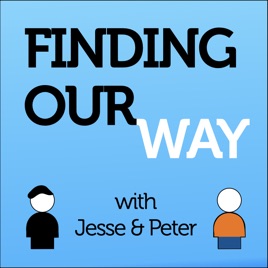
4.7
26
42
Finding Our Way
Jesse James Garrett and Peter Merholz
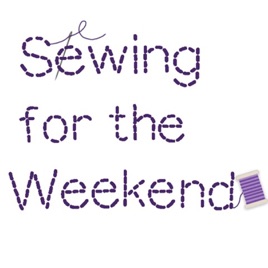
4.4
71
100
Sewing For The Weekend
Beth & Nina Firulli
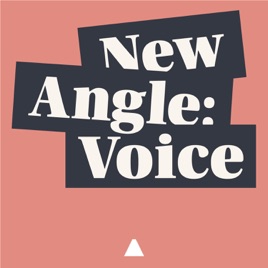
4.9
149
10
New Angle: Voice
Beverly Willis Architecture Foundation

4.9
251
402
Designed by Wingnut Social | Interior Design Business
Darla Powell
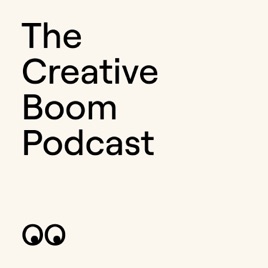
4.8
27
113
The Creative Boom Podcast
Creative Boom
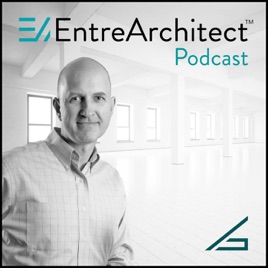
4.8
156
500
EntreArchitect Podcast with Mark R. LePage
EntreArchitect // Gābl Media

4.8
371
256
Build Your House Yourself University
Michelle Nelson
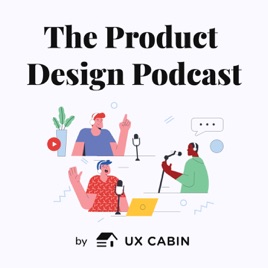
4.6
10
58
The Product Design Podcast
Seth Coelen, CEO at UX Cabin
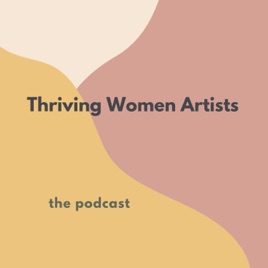
4.8
38
83
Thriving Women Artists
Thriving Women Artists



